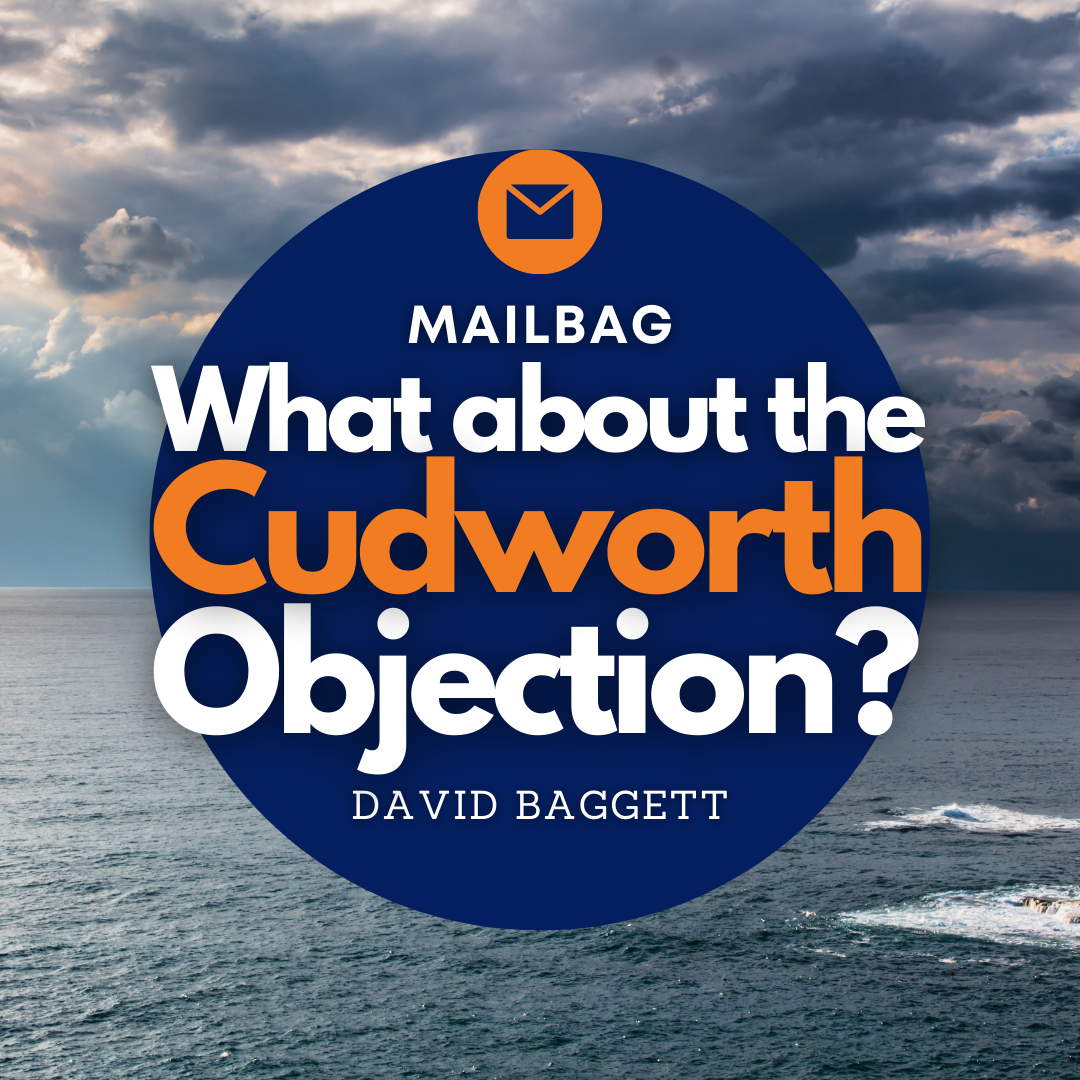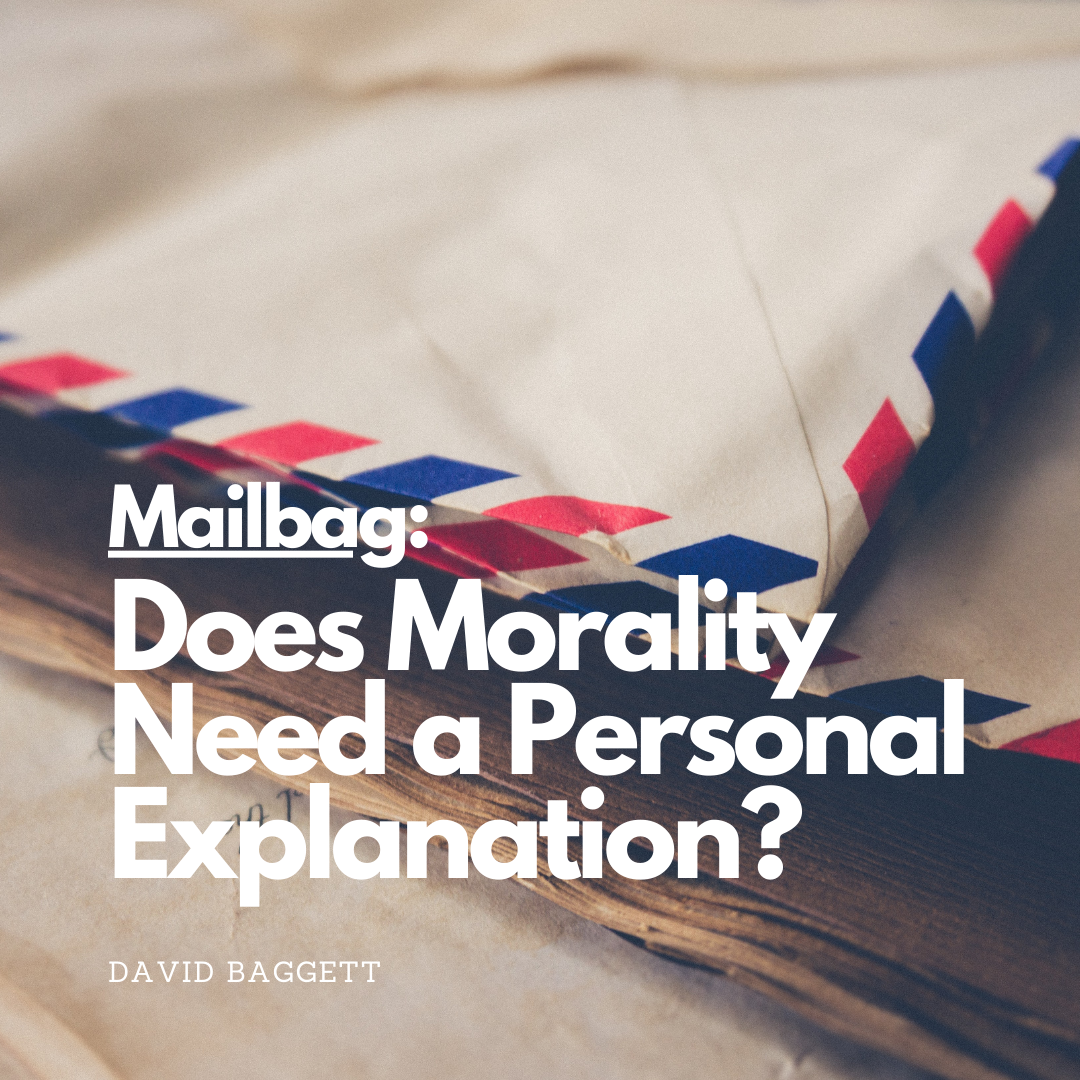Mailbag: What about the Cudworth Objection?
/Question:
I am writing to you because I am currently working on an article that is critical of certain versions of the moral argument and I am researching the work that you have done on the topic. I have read both Good God and God and Cosmos. Recently, as I was reviewing your arguments concerning moral obligation, I was re-reading a passage from chapter 9 of God and Cosmos, specifically the section titled, "Moral Obligations." What caught my attention is something that you say on p. 289: "[God's] commands would furnish powerful new reasons or performing various acts."
I hope that you might have time to consider and respond to a couple of questions about what you say here. The focus of my article is precisely on the question of whether God's commands can provide us with additional reasons. My view, roughly, is that divine commands provide additional reasons only when there is an antecedent obligation to obey God. In the absence of such an antecedent obligation, divine commands are normatively impotent (i.e., they add nothing to our reasons to engage in any action). My question is this: Do you agree that God's commands provide additional reasons only given the existence of such a prior obligation or do you think that God's commands can provide such reasons without such a prior obligation? If the latter, do you have an argument for the conclusion that God's commands can provide additional reasons in the absence of any prior obligation to obey God (and have you provided such an argument in any of your published works?).
Please forgive me if you have addressed these questions in your books or other writings. I have tried to track down answers, but I have not found anything that directly addresses these questions. If I have missed something, I sincerely apologize.
Thank you very much for you time,Jason
Answer:
Hi Jason! Thanks for the note. Hope you are well. I'll offer what I have, which isn't much!
What a fun project you're working on. Appreciate the question, and it's an important one, I think. I suspect the answer to your question is "yes," that DCT provides new reasons iff we're antecedently obligated to obey God. The question then boils down to why whether we're obligated to obey God and, if so, why. This is the "prior obligations objection," and it's a thorny challenge, I think. We first discussed it a bit on pp. 122-123 of Good God, though not by name. There we took up the question of God's authority--does he have the authority to give us binding commands? And we try tying our answer to his great-making properties. That was at least our first go trying to address what we considered the crux of the issue.
In a later book that my wife and I wrote together called The Morals of the Story, we discuss it at a bit more length, though still altogether too briefly. Here we discuss it explicitly by name, on pages 147-149. The objection is tied to Cudworth historically, so sometimes gets dubbed the "Cudworth objection." At any rate, we mention what Jer and I said about it in Good God, but also discuss a half dozen possible solutions to the puzzle that Evans provides in God and Moral Obligation. We don't really discuss them at length as much as point readers to take a look at what he says on pages 98-101 of his book. We also mention Hare's solution echoing Scotus and Pufendorf that you can find on p. 58 of God's Command.
'm sure there's quite a bit more to say about this important objection, but so far those are the only places I've addressed it. I'm inclined to think that if we can answer the question of God's authority well, it will address the matter. Although Evans made mention of the possibility of bootstrapping, most worry that there's something circular to punting to God's command to account for the authority of God's command--even though God does tell us to obey him. I'm left wanting more, and understand others who do as well. So far I've rested somewhat content with the sketch of an answer provided by the considerations Evans, Hare, and Jer and I have offered, but as I say I'm sure quite a bit more can and should be said.
The reason I retain such openness to DCT is not because I think it's the only possible way to ground ethics in God, but just because, honestly, it strikes me as intuitive that God would be the one able to issue authoritative commands owing to who he is and who we are as creatures, and because the objections to it I've heard usually strike me as admitting to a solution. So it's never seemed an obviously bad theory to me, although I'm more strongly committed to a dependence relation of morality on God in one way or another than specifically this way. Regarding this objection, if bootstrapping isn't enough, as I suspect it isn't, it would show that a key foundational principle on which DCT is predicated is an obligation not attributable to DCT. But since I don't think that all moral realities are grounded in DCT, this doesn't bother me too much. Maybe it should bother me more than it does, but at least I console myself by the reminder that other moral theories, at their root, encounter a similar challenge. For example, the utilitarian is confronted with the question, Why maximize utility? Appealing to the maximization of utility doesn't help much. It makes some amount of sense, to me anyway, that so foundational a grounding principle might have a slightly different moral rationale than the rest of the theory. And if, for the DCT'ist, it comes down to something as foundational as good moral reasons, and even an obligation, to obey our Creator who loves us, is perfect, who desires our well-being, etc., then I feel like we're on the right track.
As I say, I have tended to divide the two questions you're tying together, though I can see why you think them intimately connected: does God have authority to issue us binding commands, and does DCT offer us distinctive ("powerful new") reasons to perform various acts. I find that explicit connection intriguing, and wondering if there's something new you're pointing out there or if there are just two conceptually distinct questions here.
Blessings in your work! I look forward to what you come up with.
Best,
Dave















